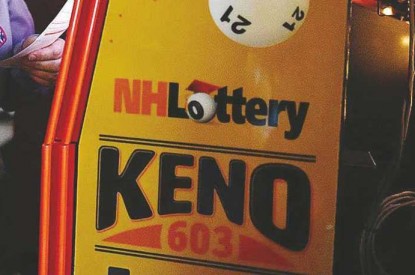Legislation
US – Fifteen states unite against Wire Act interpretation
By Phil - 13 March 2019
A group of 15 states led by New Jersey, New Hampshire, Pennsylvania and Michigan have said they will take legal action over the Department of Justice’s new interpretation of the Wire Act.
The new opinion would jeopardise the survival of a dozen online lotteries throughout the US, as well as online gaming in New Jersey, Nevada, and Delaware, and latterly Pennsylvania.
The New Hampshire Lottery said it would sue the US Attorney General William Barr and the DOJ and was immediately backed up by New Jersey and Pennsylvania.
The Pennsylvania Lottery has filed to join the lawsuit as a co-plaintiff, while New Jersey and Michigan both filed amicus briefs in support of New Hampshire’s stance.
The Michigan Lottery lent its support this week filing an amicus brief. If approved, this would allow them to be a party in the lawsuit.
The Michigan Lottery’s filing includes the signatures of 12 more jurisdictions or their lottery corporations: Mississippi, Kentucky, Rhode Island, Tennessee, Virginia, Colorado, Delaware, Idaho, Vermont, North Carolina, Alaska, and DC.
The New Hampshire Lottery lawsuit wants ‘declaratory and injunctive relief against the defendants.’
“New Hampshire is taking action to protect public education in New Hampshire,” said Governor Chris Sununu. “The opinion issued by DOJ puts millions of dollars of funding at risk, and we have a responsibility to stand up for our students.”
“The New Hampshire Lottery has a responsibility to support education in New Hampshire,” New Hampshire Lottery Executive Director Charlie McIntyre said. “Just last year, the New Hampshire Lottery generated $87.5m in net profits, all of which supports education in New Hampshire, and we expect to generate more than $90mfor education this year. This reversal by DOJ puts that support for education in question.”
The law suit added: “The US DoJ’s reversal of the 2011 Opinion, coupled with statements that depart from long-standing non-use of the Wire Act to prohibit state-run lottery activity, now subject the NHLC and its employees and agents to criminal liability and prosecution. As a result, the NHLC is confronted with the uncertainty of whether or to what extent it needs to cease its operations because all of its lottery-related activities use the Internet or wires incidentally. The 2018 Opinion also has the potential to create catastrophic consequences for lotteries across the country and to jeopardise billions of dollars in state funding for good causes that are supported by lottery activity that is authorised and legal in every state where it takes place.”
The New Jersey suit said the courts: “can and should grant relief that reaches beyond the parties and the District of New Hampshire, and that protects the interests of third-parties like New Jersey nationwide. Under the Declaratory Judgment Act, the Court should declare that the Wire Act does not cover non-sports-related gambling in any jurisdiction, and under the Administrative Procedure Act, the Court should vacate the DOJ’s 2018 reinterpretation of the Wire Act as null and void.”
Michigan said it believes the 12 cosignatories on its filing demonstrates the “need for nationwide equitable relief to combat the 2018 Opinion’s nationwide consequences,” and “emphasizes the “erroneous nature of the 2018 Opinion’s legal conclusions.”
Pennsylvania slammed the opinion as, “arbitrary, contrary to the plain meaning of the Wire Act, and inconsistent with directly applicable precedent.”
It said in its filing: “Given the use of wire transmissions for Pennsylvania Lottery games as described above, the broadest interpretation of the 2018 Opinion could result in the suspension of all state lottery sales, resulting in an immediate annual loss of over $1bn in Lottery proceeds that benefit older Pennsylvanians.”
The DoJ has extended the window by which operators need to adhere to its new interpretation of the Wire Act. When it was published in mid-January, the DoJ said it would be enforced within 90 days giving a deadline of April 15. It has extended this by a further 60 days.


